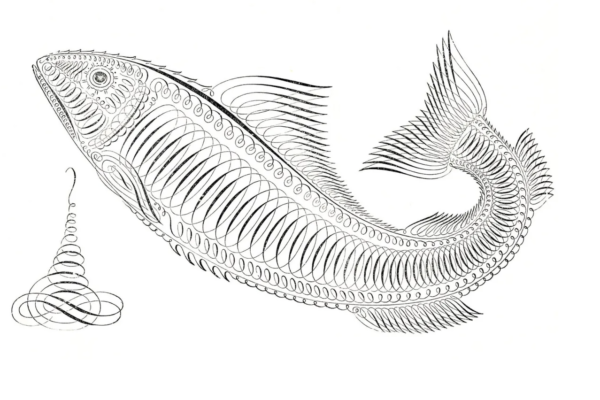Below we continue our interview with New Yorker staff writer Jia Tolentino. You can read Part I here.
Erica Stisser: How does your approach differ between fiction and non-fiction?
Jia Tolentino: Well, speaking of humor, I am an incredibly unfunny fiction writer, which is part of the reason I was never sure I would be able to write good fiction, and still am not. But I also started writing my MFA novel when I was 21, shelved it a couple years ago, and I haven’t written fiction since.
I think I learned a lot from trying to write fiction, though. Those technical tricks—sketching a scene, dealing with dialogue. Even the deep internal rhythm of ending a short story and the deeper structure things that you learn from struggling through a novel, I think I’ve tried to use that. I also value the flexibility that you learn writing fiction. I haven’t learned how to be as flexible as a non-fiction writer yet. How do you think about the difference?
ES: For me, there are more rules to follow in fiction. There are more clearly defined standards for what counts as good writing, even in experimental fiction. In non-fiction it’s more like you’re exploring as you go, and sometimes I feel that fiction doesn’t give you the same liberty to find it out.
JT: Right. In the midst of my MFA program I found it incredibly comforting to work in a medium where you can’t make anything up. The magic of fiction is that you have to pull something more real than reality out of thin air. It’s so much harder to do that—it’s harder to do that than it is to write well about something that already exists. With fiction, you have to make up all the boundaries and contours of that world. It’s like drawing something you’re looking at versus sculpting something you only see in your mind.
ES: That’s a good analogy. I totally get that.
I want to talk a little bit about ethics. What would you not do to get the story? Or what’s a piece you’ve written that you felt iffy about?
JT: I was actually just talking to a friend about this. When I started writing for the Hairpin, I started interviewing adult virgins. I was in Ann Arbor, trying to think of a series I could do from afar, something on a topic I’d never read anything interesting about. So I started interviewing adult virgins about how that ended up being their situation. Learning to interview people felt like getting to a bar early and waiting for a friend and ending up in this incredibly personal conversation with a stranger. I love that journalism gives you an excuse to do that.
ES: Yeah.
JT: But when you do that, you have to bring your charisma to bear. You have to draw out a subject. You have to make them trust you. You have to make them want to talk to you. It often resembles flirting, and I don’t think flirting is always sexual—it’s just a quicker than normal acceleration to intimacy, which is necessary for writing. But as a young woman who does not always present as someone who is readily capable of sharp critical thought, I’ve wondered about this. Once, I did do something I think was wrong, and it started when I got offended, which doesn’t happen to me often.
ES: By what?
JT: I was at Lollapalooza, and this guy was wearing a North Face shirt that said RAPE YOUR FACE. And I walked up to him and I was like, “Hey, I’m a reporter for Jezebel, and I was wondering if I could take a picture of your shirt for an article and talk to you about it.” I was very clear about that—but I was also wearing a crop top and short shorts and holding a Budweiser and it was a music festival and I wonder, given his very clear inclinations about women, if he read what I was doing as a different kind of overture. I was smiling, too—I was a little intimidated, it was partly a defense mechanism. And I was like, “Where’d you get that shirt? It’s really interesting.” And I talked to him about his shirt, smiled at him to get him to keep talking to me. Finally I asked him, “Have you ever actually raped anybody’s face?” And his friend goes, “You’re just going to have to find out, aren’t you?”
And at that moment I was fucking furious. I tweeted his picture with his face in it and wrote up the conversation without naming him. In retrospect, I definitely should have blocked out his face. It wasn’t necessary. I don’t think I was unjustified in it, I don’t think I crossed any hard lines, but I wouldn’t do it again. My offense is what made me tweet that picture, and my personal offense is not what I ever want driving my decisions.
ES: I want to talk about your use of the first person. What’s your intention when you take on that point of view?
JT: It’s different from piece to piece. Using first-person comes very naturally to me, so I try to be wary of it. Sometimes I can feel self-interest bubbling up and it’ll take me till a third draft to figure out how to excise as much of that as I can. To talk about means and ends again, I try to use the “I” as a means rather than an end.
ES: Oh, that’s a really interesting way to put it.
JT: Yeah. I think I’m definitely present enough already in my work—I have a strong personality and I think it comes out—and so I’d rather wedge first-person in there when it’s useful in terms of establishing authority or making a point you can’t get any other way. I wrote an essay about affirmative action that hinged on my specific experience tutoring really rich kids, basically ghostwriting their college essays. There was no way to write that essay honestly without being very clear about where I came from, what my position was and how I felt about it then and now. In that case, my purpose in using the first person was to destabilize the argument from underneath. To be like, here’s why you might expect me to defend myself, but I’m not going to. Another thing I care about politically, care about trying to work out in writing, is the fact that I can be guilty, I can be culpable, I can have acted badly—and it’s okay. It doesn’t make me a bad person. Or, whatever kind of person I am, it might be beside the point.
ES: It’s a great narrative choice, I think. What have you written that you’re most proud of?
JT: It honestly is that abortion piece. And I didn’t even really write it. The whole thing surprised me—it was a surprising topic, surprising reactions, surprising format. It was a nice reminder that the plainest possible storytelling can be incredibly effective. All I did was talk to this woman for two hours.
ES: You’ve written about some really high profile people. And music writing, politics, culture. How do you kind of approach the element of celebrity? Is there a different way you approach it when you know your subject is a big name?
JT: Profiling is wild. I still don’t know what it is, actually. I’m trying to learn. In terms of criticism, I have a real anti-celebrity bias—not that I dislike celebrities but that I think celebrity life is necessarily unrepresentative. I don’t like this thing where we read celebrity lives like tea leaves for our own. I wrote a piece the week that Kim Kardashian was robbed in Paris and Elena Ferrante’s identity was revealed, and everyone kept writing things like, “This is why it’s impossible for women to achieve anything.” And I thought, I don’t know. These are two very different stories, first of all, which seem much more interesting in terms of the specific than the general.
ES: Is there a writer or artist you’d be star struck to meet?
JT: Good question. I interviewed Zadie Smith recently, and usually I don’t like doing things like that—I think writers, and I mean myself here, not Zadie Smith, should be read and not seen. But she was just the calmest, radiating pure intellectual calm. I was a little starstruck for sure.
I mentioned I’m writing this essay about heroines, and it’s made me realize that the only characters in pop culture I’ve ever identified with are children in children’s books. Like Laura Ingalls. It’s made me wonder if I’m super regressive. I have a thing about children’s books generally—I profiled Louis Sachar awhile ago and got a little nervous around him. I think I get more nervous around writers than celebrities.
ES: Writers can shake you, definitely. What do you think you’d be doing if you weren’t a writer?
JT: I would be teaching, although I guess that’s too similar to writing for the sake of this question, which I love. I love the question of like—what’s your beach town job? Are you renting out boats? Are you the shitty landlord managing condos? I’d want to run a used bookstore or a airbrushed T-shirt shop. My dream exit from journalism in the event of a full industry collapse is, I’ve started to do voiceover work.
ES: Really?
JT: Yeah. If you hear an ad on Spotify for a mattress called Bedgear, it’s me. “The world’s first performance sleep system.”
ES: Oh my God. Yeah, you have a really good radio voice.
JT: I can do meditation tapes, I think.
ES: Become aware of the very tips of your fingers…
JT: Yeah, exactly.
ES: You’re cut out for it, you’re all set.
JT: Yeah. But voiceover is even harder to get into than journalism, I fear.
ES: Tell me about your upcoming book, Trick Mirror.
JS: It’s nine or so essays, due October of next year [2018]. I wanted to write a book because I wanted to do something that was—back to this thing—fun and hard in a way that I could completely determine for myself. I also wanted to do something that nobody would see for a lot of time, to get off the hamster wheel of instant feedback.
The book is loosely organized around the concept of self-delusion—coming out of this animating idea that there are a lot of new incentives to be hyper-self-conscious, to build up a lot of cognitive dissonance around the self. Social media is programmatically set up to make your identity seem like the home base for the entire world. Three of the essays are going to be personal, sort of trying to figure out how I have been fooling myself. I was on a reality show when I was 16—spent a month in Puerto Rico filming it—and I’m going to finally watch it and write about it.
ES: How could you not ever watch it?
JT: I’m too ashamed. I was happy to skip school and go on a reality show and give confessionals to the camera. But I had no desire to watch it. What that says about the nature of my own constantly bubbling-up self-interest I’ll have to work out in the essay. It’s really so embarrassing, though—it was like Real World vs. Road Rules but with eight high school students, and I was in a bathing suit the entire time doing scavenger hunts and jousting on jet skis and I gained like 15 pounds in 4 weeks on piña coladas. It was extremely fun at the time. I was already attracted then to situations that make me uncomfortable. I like seeing what I can absorb without flinching. I think I find discomfort fun.
Jia’s prose is a new kind of cultural criticism – fun and hard and brave and charismatic, all themselves an extension of her own personality. She’s a writer who comes to life on the page but who won’t distance herself from the real world (no pun intended) where all the life happens. She’s a writer who throws her voice and trusts her gut, and as her body of work continues to grow, she’s a voice that demands not just acknowledgment, but action.



